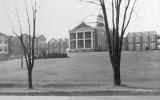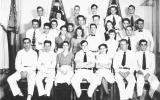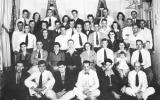CPS Unit Number 047-01
Camp: 47
Unit ID: 1
Title: Springfield State Hospital
Operating agency: BSC
Opened: 8 1942
Closed: 7 1946
Workers
Total number of workers who worked in this camp: 119
-
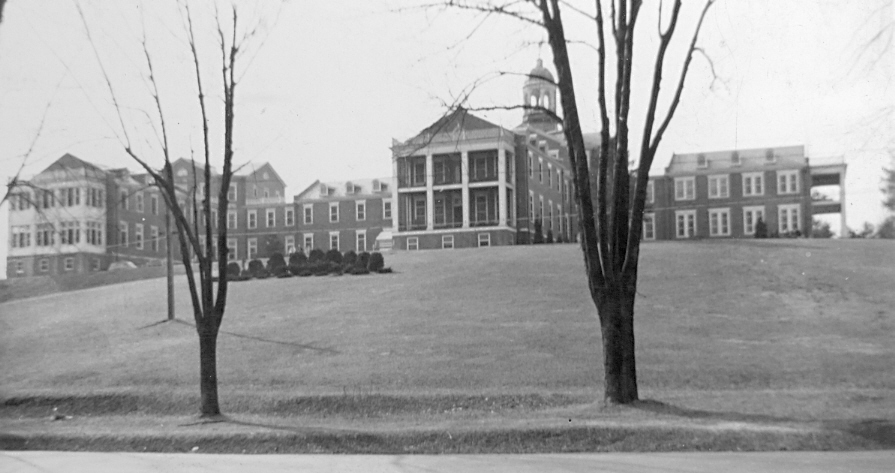 CPS Camp # 47, Sykesville, MarylandSpringfield State HospitalDigital Image Brethren Historical Library and Archives. All Rights Reserved
CPS Camp # 47, Sykesville, MarylandSpringfield State HospitalDigital Image Brethren Historical Library and Archives. All Rights Reserved -
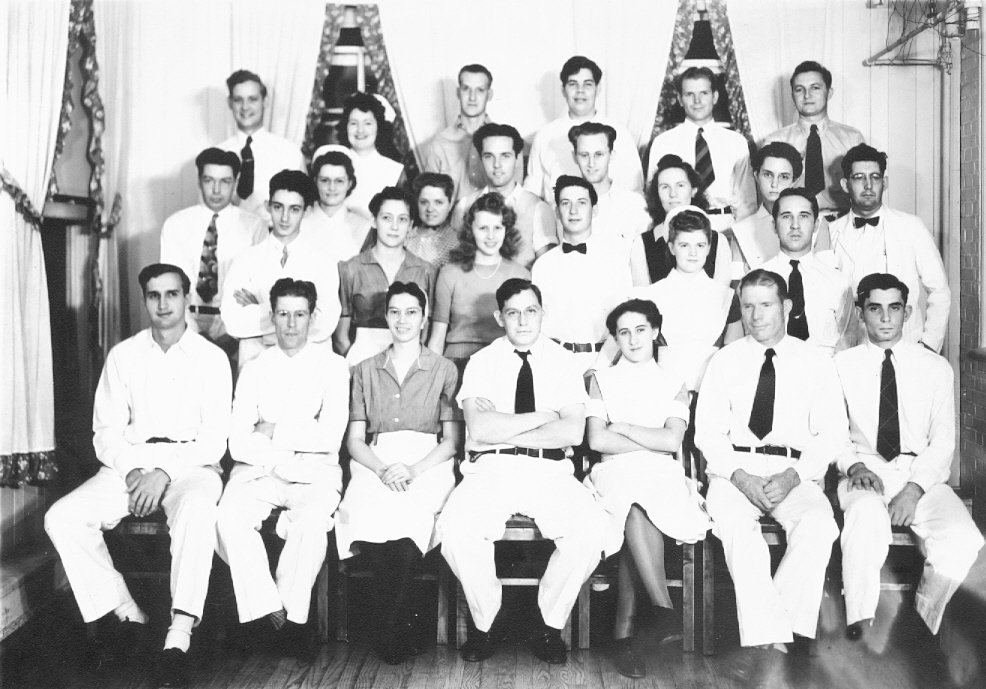 CPS Camp # 47, Sykesville, MarylandGroup 1Digital Image Brethren Historical Library and Archives. All Rights Reserved
CPS Camp # 47, Sykesville, MarylandGroup 1Digital Image Brethren Historical Library and Archives. All Rights Reserved -
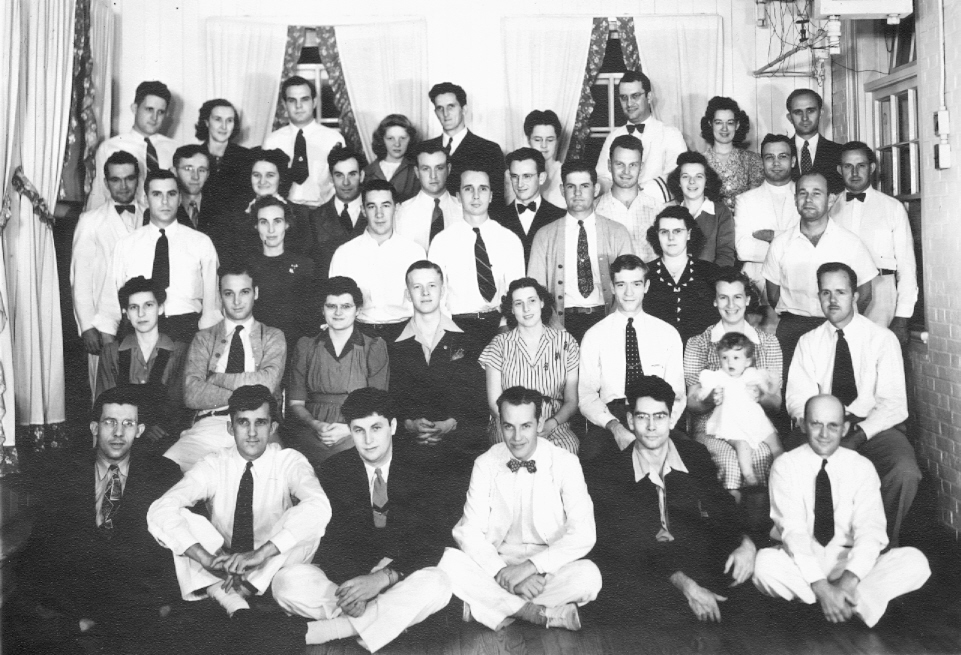 CPS Camp # 47, Sykesville, MarylandGroup 2Digital Image Brethren Historical Library and Archives. All Rights Reserved
CPS Camp # 47, Sykesville, MarylandGroup 2Digital Image Brethren Historical Library and Archives. All Rights Reserved
CPS Unit No. 47, a Mental Hospital unit located at Springfield State Hospital in Sykesville, Maryland operated by the Brethren Service Committee, opened in August 1942 and closed in July 1946. Most of the men served as ward attendants.
Directors: Edwin Keller, George Vician, Charles Pieh, Ray Mahaffey, Robert Elliott
Men in Brethren camps and units tended to report diverse religious affiliation when they entered CPS, although the Brethren projects usually included a core of those with Brethren experience. Men in Brethren projects reported considerably more education and professional experience than those who enlisted in the Army and Navy, and brought an average of 12.22 years of education. (Sibley and Jacob pp. 171-72)
The majority of the men served as ward attendants, although some also served in clerical, agricultural, maintenance and construction, motor vehicle operation, technical and professional as well as food preparation roles. Of the 49,125 person hours performed during the life of the unit at Springfield State Hospital, ward attendants provided 37,454 while those serving in food preparation gave 5,620 hours, and those contributing professional or technical assistance performed 2, 574 hours of service. (Selective Service form DSS 52 as published in Eisan p. 212)
The work of ward attendant involved complete housekeeping (sweeping, mopping, waxing and polishing floors, bed making and caring for patients’ clothes). Attendants supervised patients and assisted them in eating, bathing, dressing and undressing. In addition, an attendant might serve as an aide in giving various treatments including dressings, injections, electric shock and hydrotherapy. Ward attendants also accompanied patients on walks, in recreational and social activities. Men worked in male wards.
In Brethren camps and units, assignees were often tapped to become directors and assistant directors. In the mental hospital units, the hospital superintendent held authority over the work as well as the housing and food for the men, while the assistant director guided men providing leadership for the educational, spiritual, recreational and other aspects of unit life. The assistant director played an important role between the hospital superintendent and the Brethren Service Committee in advocating for the needs of men in the unit as well as in policy administration.
Following his service at Springfield State Hospital, Edwin Keller served at CPS Camp No. 21 at Cascade Locks in Oregon. While there, he delivered a well-received series of lectures on mental health based on his experiences at Springfield.
For information on Brethren mental health and training school units see Leslie Eisan, Pathways of Peace: A History of the Civilian Public Service Program Administered by the Brethren Service Committee. Elgin, IL: Brethren Publishing House, 1948, Chapter 6 pp. 205-238.
For stories from men who, as COs, walked to a different drummer during World War II, see Mary R. Hopkins, Editor, Men of Peace: World War II Conscientious Objectors. Caye Caulker, Belize: Producciones de le Hamaca, 2010, S. Allen Bacon pp. 48-55.
Jeffrey Kovac, Refusing War, Affirming Peace: A History of Civilian Public Service Camp No. 21 at Cascade Locks. Corvallis, OR: Oregon State University Press, 2009.
See also Alex Sareyan, The Turning Point: How Persons of Conscience Brought About Major Change in the Care of America’s Mentally Ill. Scottdale, PA: Herald Press, 1994.
For additional information on protests of conscience, see Mulford Q. Sibley and Philip E. Jacob, Conscription of Conscience: The American State and the Conscientious Objector, 1940-47. Ithaca, NY: Cornell University Press, 1952, pp. 257-279.
Swarthmore College Peace Collection, Camp periodicals database.
For more in depth treatment of mental hospital units and training schools, see Steven J. Taylor, Acts of Conscience: World War II, Mental Institutions, and Religious Objectors. Syracuse, NY: Syracuse University Press, 2009.
